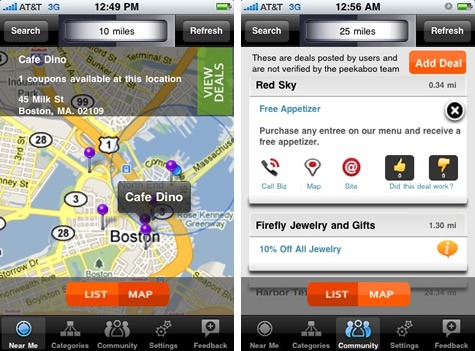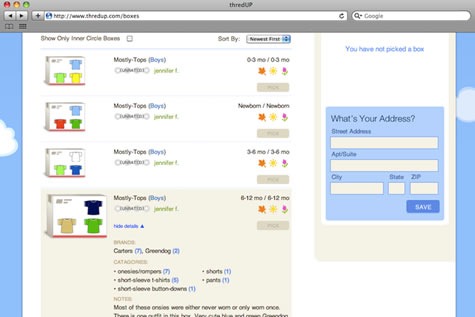I had a chance to swing by a geek mixer held at Microsoft’s New England Research and Development Center (NERD, get it?) to rub elbows with a handful of local startups doing some interesting things. Keep these guys on your radar screens—you might hear more from them in the future.
Episend

Browser-based Episend aims to make sending any type of file or groups of files with drag-and-drop simplicity. It skirts the file size limitations of e-mail and the relative complexity of FTP uploads by featuring a free-form, blank canvas message area upon which you can drag and drop videos, photos, documents, and more. Files can be positioned anywhere on the canvas and annotated (for example: Open this one first! This one next!) before being sent to any e-mail address or shared across various social networks. Messages are assigned a unique URL that can be opened by recipients.
According to the site:
“Episend is perfect for privately sharing photos, videos and files with friends, family, and business colleagues, and gives recipients the opportunity to download the original file for printing or editing. For professionals and creative contractors, it is a great way to send large files and deliverables to clients.”
There are free and paid versions available.
Peekaboo Mobile

Peekaboo Mobile is a hyper-local deals app that uses your phone’s GPS chip and Google Maps to show you nearby deals in real-time. It’s a free iPhone app, with Android and BlackBerry versions coming soon.
Deals and coupons are added by local businesses, making Peekaboo a great tool to use while exploring new neighborhoods and shopping areas, and you can share deals you find yourself with other Peekaboo users. Bargains are plentiful in the Boston area with more and more cities being added as the application gains traction.
ThredUP

I don’t have kids yet, but it’s come to my attention that clothing them is expensive since they grow out of whatever you buy them within about five minutes. ThredUP tackles that problem with an ingeniously simple clothes swapping system. Members pack gently-worn kids clothes into USPS flat-rate shipping boxes that can be purchased by other members for $13 each.
Once your kids outgrow their clothes, pack up a box yourself. Members are rated eBay-style and boxes can be browsed by gender, clothing type, size, and season. Membership is free, with $30 per year “Pro” accounts available.
iZUP

Cell phones have taken the problem of distracted driving and amplified it exponentially, with plenty of accidents caused by texting, e-mailing, and talking behind the wheel. Available for Android and BlackBerry, iZUP senses when you’re moving faster than 5 miles per hour and prevents your phone from sending or receiving text messages, calls, and blocks web surfing and application use. You can authorize up to three phone numbers to slip through along with one application—navigation, for instance—but everything else will have to wait until you slow down to a safe speed.
Pricing starts at $4.95 per month or $49.95 per year for a single user, with family plans running $9.95 per month or $79.95 per year for up to five phones. There’s a free 30-day trial and an iPhone version coming soon.
Reper

It’s still in alpha testing but online reputation hub Reper is poised to make some waves when it launches. Billed as an open source reputation repository by founder Henry Harding and overseen by Napster CEO John Fanning(Shawn Fanning’s uncle), you’ll be able to view, comment on, and create profiles for just anyone on the internet in order to mold their online reputation. There’s a sophisticated algorithm in place to weight comments, build or erode reputation scores, and gain credibility when rating other people. Perhaps most importantly, you’ll be able to answer your own critics.
No firm launch information yet, but we’ll keep an eye on this one.
More on Techland:
Checking in on the Next Generation of Inventors
MIT’s Mouseless Project is an Invisible Computer Mouse
This Wallet Gets Harder to Open As Your Bank Account Depletes

